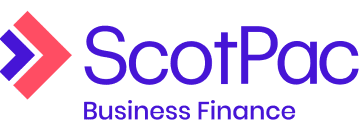A chattel mortgage is a type of loan that allows you to purchase a commercial asset. This can include cars, commercial vehicles like vans, buses, trucks and tractors and specialised equipment, though motor vehicles are the most common use for these loans. If you're in the market for a vehicle or equipment for your business, get a free, no-obligation quote with Savvy today!
Why compare business loans with Savvy?
You can speak with one of our specialist commercial brokers who can walk you through a range of loans to best suit your companies needs.
You can compare business loan offers, through a range of trusted lenders, maximising your chances of a great rate.
You can fill out our simple online form to generate a free business finance quote within minutes. You can also come back to it at any time.
Business lenders you can compare







How do chattel mortgages work?
Chattel mortgages work in a very similar way to a standard car loan, with several areas tailored to commercial needs. Here’s how they work:
- Buy new or used (provided it meets your lender’s criteria)
- Borrow from $5,001 to 100% of your asset’s value
- Have your loan secured by your asset (as collateral)
- Repay your loan over between one and seven years
- Make payments on a weekly, fortnightly or monthly schedule
- Repay with interest and fees (some may waive certain fees)
- Deposits and balloon/residual payments are optional
- Early repayments may be available with some lenders
What are the tax benefits of chattel mortgages?
The biggest difference between chattel mortgages and car loans is their tax benefits. Under a chattel mortgage agreement, you can claim the following:
- Interest on your loan repayments
- GST on the purchase of the asset
- Depreciation of the asset over time
It’s important to note that you’ll only be able to claim for the business portion of each of these expenses. For example, if you’re using your car for business purposes 75% of the time, you can claim up to 75% back on tax. You can only receive the full amount if your asset is used exclusively for commercial purposes.
If you’re unsure how much to claim, you should speak to your accountant or a tax professional. Every business is different, so it’s crucial to get personalised advice before you complete your tax return.
How are chattel mortgages different from leases?
There are several key differences between chattel mortgages and finance or operating leases. Let’s break it down:
| Chattel mortgage | Commercial lease | |
|---|---|---|
| Ownership? | From the start | Optional at the end of the agreement |
| Tax-deductible payments? | Interest only | Yes (subject to usage) |
| Residual included? | Optional | Mandatory |
| Options at the end of the agreement? | Whatever you like, as you’ll own the asset | Buy, sell or trade in the asset or refinance the residual to continue your lease (finance lease) Hand back the asset to your lessor (operating lease) |
| Available terms? | One to seven years | One to five years (up to seven possible if the residual is refinanced) |
| Ability to use a deposit/trade-in? | Yes | No |
How much will my chattel mortgage cost?
When it comes to the cost of your chattel mortgage, it’s important to keep a number of factors in mind. These include:
- Your interest rate: the higher your rate, the more you’ll pay. This is only relevant to note if your vehicle or asset is used partly for private purposes, as 100% business usage makes your interest entirely tax-deductible.
- Your loan fees: on top of interest, you may also be charged certain fees as part of your chattel mortgage. These can add up, especially if they’re charged on an ongoing basis. In some cases, though, these may also be partially or fully tax-deductible.
- Your loan amount: because interest is calculated based on your balance, larger loans will attract more overall.
- Your loan term: similarly, longer loan terms mean your loan balance is higher for longer, resulting in the interest you pay being higher overall.
- Your deposit: your deposit reduces the size of the loan, so paying part of the purchase price out of your savings can save you on interest.
- Whether you have a residual: although a residual payment can reduce your monthly repayments, it increases the amount of interest you’ll pay overall. This is because you’ll be paying your loan down to the residual value (such as $3,000) instead of $0, so your balance reduces more slowly.
How do I compare chattel mortgages?
We’ve discussed the key elements of chattel mortgages above, but when it comes to comparing your options, it’s essential to know what you’re looking for. The most important points of comparison between different offers are:
- Interest rates
- Fees (including the nature of the fees, such as application, ongoing or early repayment costs)
- Comparison rates (a combined rate including both interest and non-conditional fees)
- Available loan terms
- Available loan amounts (whether there are borrowing limits imposed)
- Repayment flexibility (your ability to choose your repayment schedule and pay off your loan early without fees)
- Personal and business eligibility criteria
- Asset eligibility criteria
When you apply with Savvy, however, we’ll do the hard work for you. Once we receive your application, we’ll get to work comparing options available from our vast and diverse lender panel to find the best deal available for your business.
The benefits of chattel mortgages
Applying for a business loan
Make sure you’re eligible to borrow. You’ll need to have been trading for at least six months, with some requiring a minimum monthly turnover of $5,000.
Different lenders will require different documents, but you’ll need your ABN, GST, personal identification and select business financials for larger loans.
You can fill out your application form and submit it with your documents for a fast outcome and, if successful, your lender will send you a contract to sign.
Once you’ve returned your contract, your lender can release the funds directly to your listed bank account, after which you can use them how you wish.
Once you’ve returned your contract, your lender can release the funds directly to your listed bank account, after which you can use them how you wish.
Commercial loan eligibility and documentation
You must be at least 18 years of age
You must be an Australian citizen or permanent resident (or, in some cases, an eligible visa holder)
Have an ABN registered in your name (available from as soon as one day after registration)
Meet commercial asset usage requirements (at least 51% of total usage)
You must meet your lender’s minimum personal and business credit score requirements
The asset you choose to buy must meet your lender’s requirements in relation to its type, age and condition
Such as your full name, date of birth, address and contact details
Front and back (or another form of government-issued ID)
Information about your business’ assets and liabilities, as well as those in your name
Information about your asset, including its model and age, is worthwhile having on hand
Business Activity Statements (BAS) and business bank statements may be requested, but not always
Your chattel mortgage questions answered
There’s a long list of potential vehicles that you can use a chattel mortgage for, including:
- Cars
- Vans
- Trucks
- Trailers
- Buses
- Tractors
- Forklifts
- Ride-on mowers
- Motorcycles
- Aircraft
This doesn’t include the wide range of equipment purchases you may need, from cranes and other factory machinery to technology systems.
Yes – there are still options available to seasonal businesses. Provided you’re able to meet all your lender’s eligibility and documentation requirements, seasonal businesses may be able to work out a specialised repayment plan that meets their needs.
Yes – as long as the asset you’re buying meets your lender’s criteria, you can finance its purchase with a chattel mortgage. This can include cars from private sellers as well as second-hand dealerships.
An unsecured business loan can be used for a wide range of business purchases, including cars and other assets. These are also generally quicker to process. However, unsecured business loans generally come with higher interest rates and only tend to be used if the asset you’re buying doesn’t meet your lender’s security criteria (such as being too old or not in good enough condition).
A low doc chattel mortgage simply means you’re applying for a commercial loan with minimal documentation requirements. Although they’re traditionally designed for newer businesses that may not have all the documentation they need, these loans are common even for established businesses, as they’re fast and convenient to complete. You can apply for a low doc chattel mortgage through Savvy today!
Instant asset write-off is a tax break available to eligible businesses which allows them to claim an immediate tax deduction for an asset in the year it’s first used or installed. This specifically applies to the business portion of the asset’s usage. Eligibility for this deduction relies on when you purchased and first used it, its cost and your business’ aggregated turnover.
When you apply with Savvy, you could have your purchase approved, funded and settled as soon as within 48 hours of your application. However, there’s a range of factors that can impact the speed of this process, including:
- The time of day and week you apply
- How quickly you’re able to supply the full, correct information required and respond to your consultant’s requests
- The complexity of your personal and business profiles
- Your lender’s internal processes
- The time it takes your bank to process the payment
A novated lease is a salary sacrifice generally offered to employees, whereby the lease payments are deducted from their pre-tax income to reduce the income tax they’re liable to pay. This may be available to you as a business owner if you pay yourself a salary, though. You can speak with a member of our team to discuss your options, or with your accountant to understand the tax implications of each product.










































